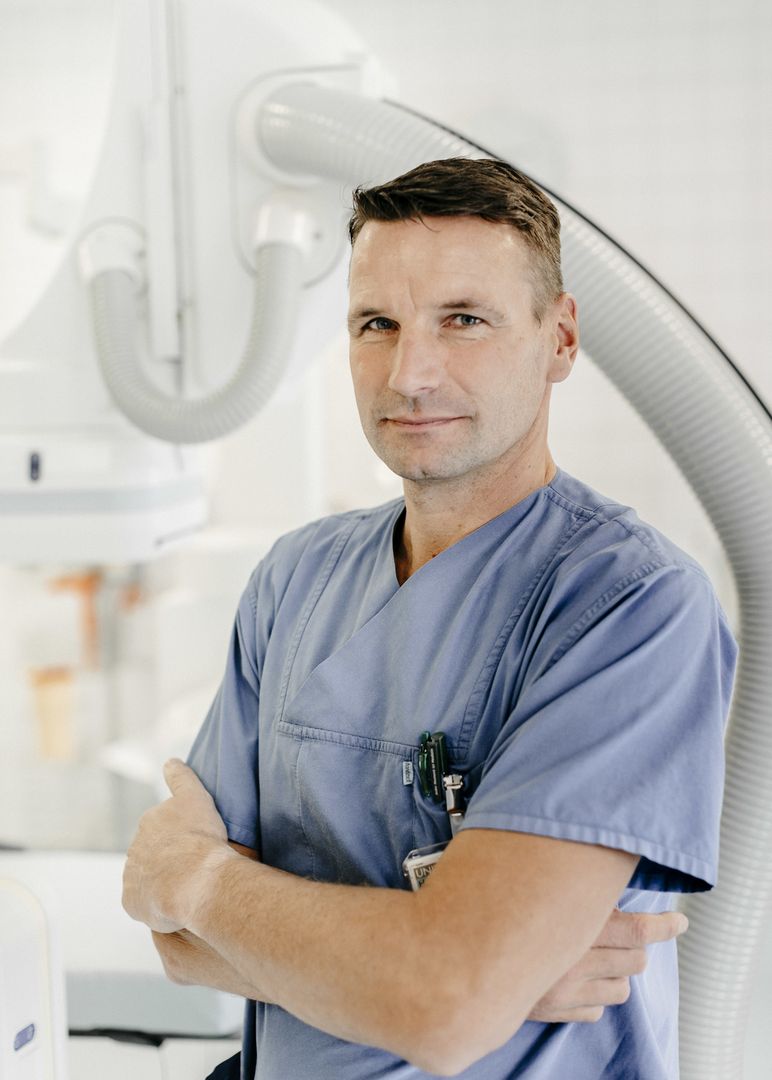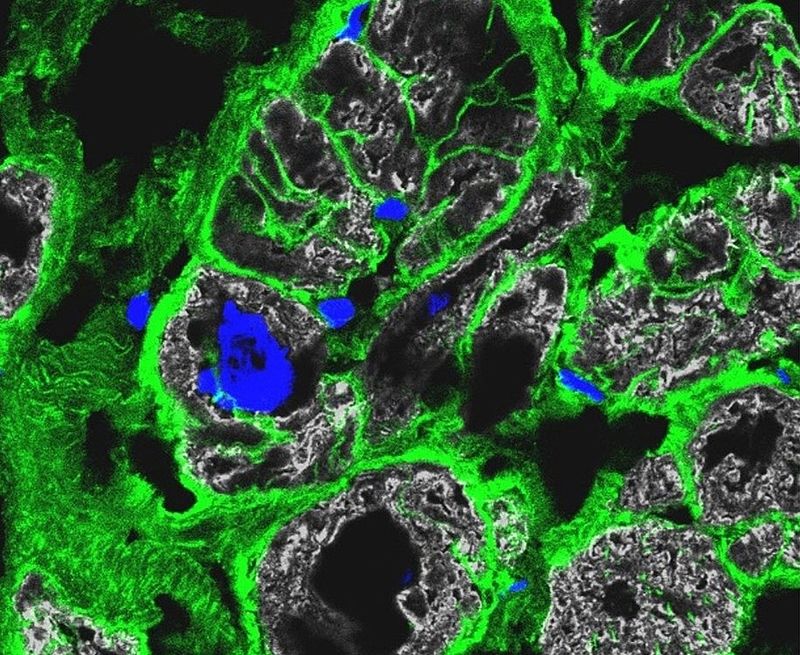Cardiogenic shock is caused by the hearts' failing ability to pump and is often triggered by a heart attack. The heart is no longer able to maintain circulation. After an acute myocardial infarction with cardiogenic shock, patients have an almost 50 percent risk of dying within 30 days. For over ten years, patients have often been treated with a so-called venoarterial extracorporeal membrane oxygenation (VA-ECMO or ECLS). This mechanical circulatory support involves the use of systems that help the diseased heart to pump blood through the body. VA-ECMO can theoretically take over the function of the heart and lungs for a certain period of time. However, this type of therapy also leads to possible complications such as bleeding or leg ischaemia, a sudden interruption of the blood supply to the leg due to the large tubes used.
Heart specialist Prof. Holger Thiele, Director of the University Clinic for Cardiology at the Leipzig Heart Centre, HELIOS Foundation Professor at the University of Leipzig and President of the German Society of Cardiology, has now conducted a major clinical study involving a total of 420 patients at 44 centres in Germany and Slovenia. In patients with acute myocardial infarction and subsequent cardiogenic shock, VA-ECMO therapy plus drug therapy on the intensive care unit was compared with drug therapy on the intensive care unit alone.
"VA-ECMO does not reduce 30-day mortality, contrary to our study hypothesis. In contrast to standard therapy, the mortality rate was not statistically significantly different (47.8% vs. 49%). The VA-ECMO group even had more complications such as severe bleeding or leg haemorrhage. We also need to rethink and reduce the bleeding and inflammation caused by the mechanical systems. Less is probably more in cardiogenic shock," says Prof. Thiele, explaining the main findings of the study. The results were also confirmed by a patient-based meta-analysis, which compared the results of all four previous studies of mechanical cardiovascular support with VA-ECMO and control therapy. Here too, VA-ECMO showed no survival advantage with more complications.
"The study results show that we must reduce the frequency of treatment with VA-ECMOs in Germany as well as internationally. I am sure that the future guidelines will take this into account and downgrade the recommendation for treatment with active mechanical cardiovascular support systems or even stop recommending it altogether in routine care," says Prof. Thiele. The heart specialist is planning a number of follow-up studies, including a one-year follow-up to identify any differences over time. "Our goal is to continue to reduce the very high mortality rate in cardiogenic shock. We can only do this through innovative studies," says Professor Thiele.
Original publication: New England Journal of Medicine: Extracorporeal Life Support in Infarct-Related Cardiogenic Shock. DOI: 10.1056/NEJMoa2307227
Scientific contact: Prof. Dr. Holger Thiele (holger.thiele(at)medizin.uni-leipzig.de), Head of the University Medicine for Cardiology at the Heart Center in Leipzig
Source: Pressemitteilung der Universität Leipzig



